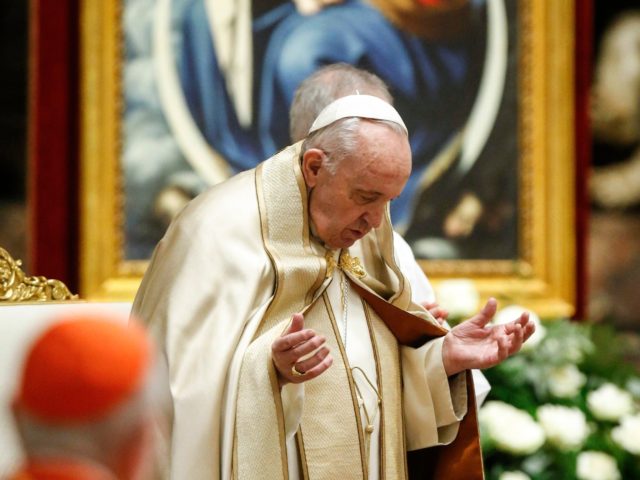ROME — Pope Francis called for peace in Paraguay on Wednesday as protests over surging coronavirus cases and political corruption have met with violence.
Following his weekly General Audience, the pope said he has been “concerned about the news from Paraguay,” with demonstrators demanding the impeachment of President Mario Abdo Benítez over his perceived mishandling of the health crisis.
“Through the intercession of Our Lady of Miracles of Caacupé, I ask the Lord Jesus, Prince of Peace, that a path of sincere dialogue may be found to find adequate solutions to the present difficulties, and thus build together the longed-for peace,” the pontiff told viewers following his streamed address from the library of the Apostolic Palace in the Vatican.
“Let us remember that violence is always self-destructive,” Francis declared. “Nothing is gained through it, but much is lost, sometimes everything.”
Political corruption and unrest are a way of life in Paraguay, with the ruling Colorado party in power almost exclusively over the last 70 years, which included a military coup in 1989 and a failed coup attempt in 1996.
A recent surge in coronavirus cases in the land-locked country combined with a glacially slow vaccine rollout has sparked anti-Abdo protests that have at times turned violent. For their part, police have responded with water cannons and rubber bullets.
Pope Francis traveled to Paraguay in July 2015 and during his visit he acknowledged Paraguay’s troubled and often violent history.
“From the first days of the country’s independence to recent times, Paraguay has known the terrible sufferings brought on by war, fratricidal conflict, lack of freedom and contempt for human rights,” the pope said at the time. “How much suffering and death!”
Francis commended the Paraguayan people for their “admirable spirit of perseverance in surmounting adversities and in working to build a prosperous and peaceful nation” while urging citizens to learn from their past so as not to repeat its errors.
“A people which forgets its own past, its history and its roots, has no future, it is a dull people,” he said. “Memory, if it is firmly based on justice and rejects hatred and all desire for revenge, makes the past a source of inspiration for the building of a future of serene coexistence.”
“It also makes us realize the tragedy and pointlessness of war,” he said. “Let there be an end to wars between brothers!”
“Let us always build peace!” he urged. “A peace which grows stronger day by day, a peace which makes itself felt in everyday life, a peace to which each person contributes by seeking to avoid signs of arrogance, hurtful words, contemptuousness, and instead by working to foster understanding, dialogue and cooperation.”

COMMENTS
Please let us know if you're having issues with commenting.